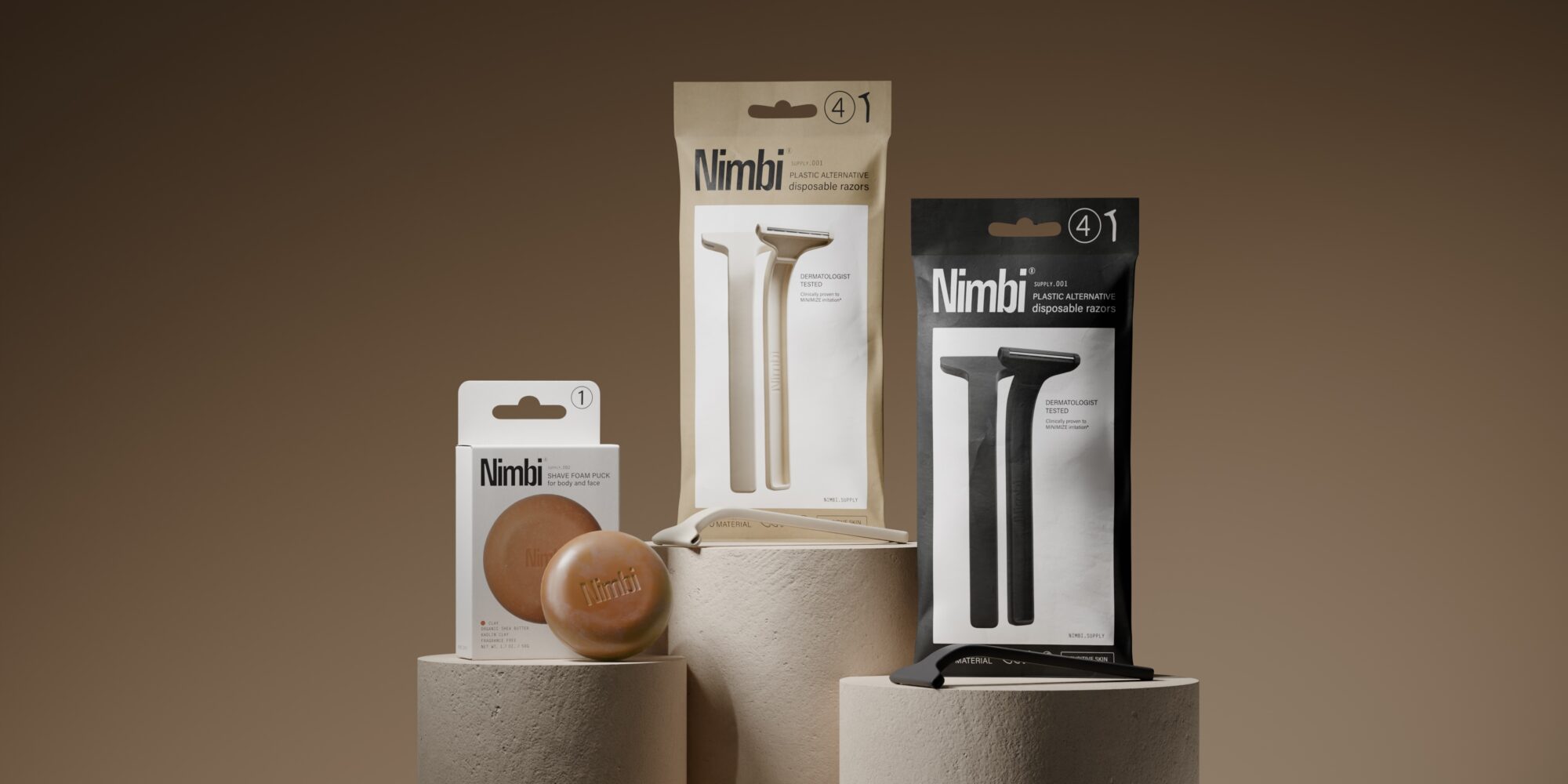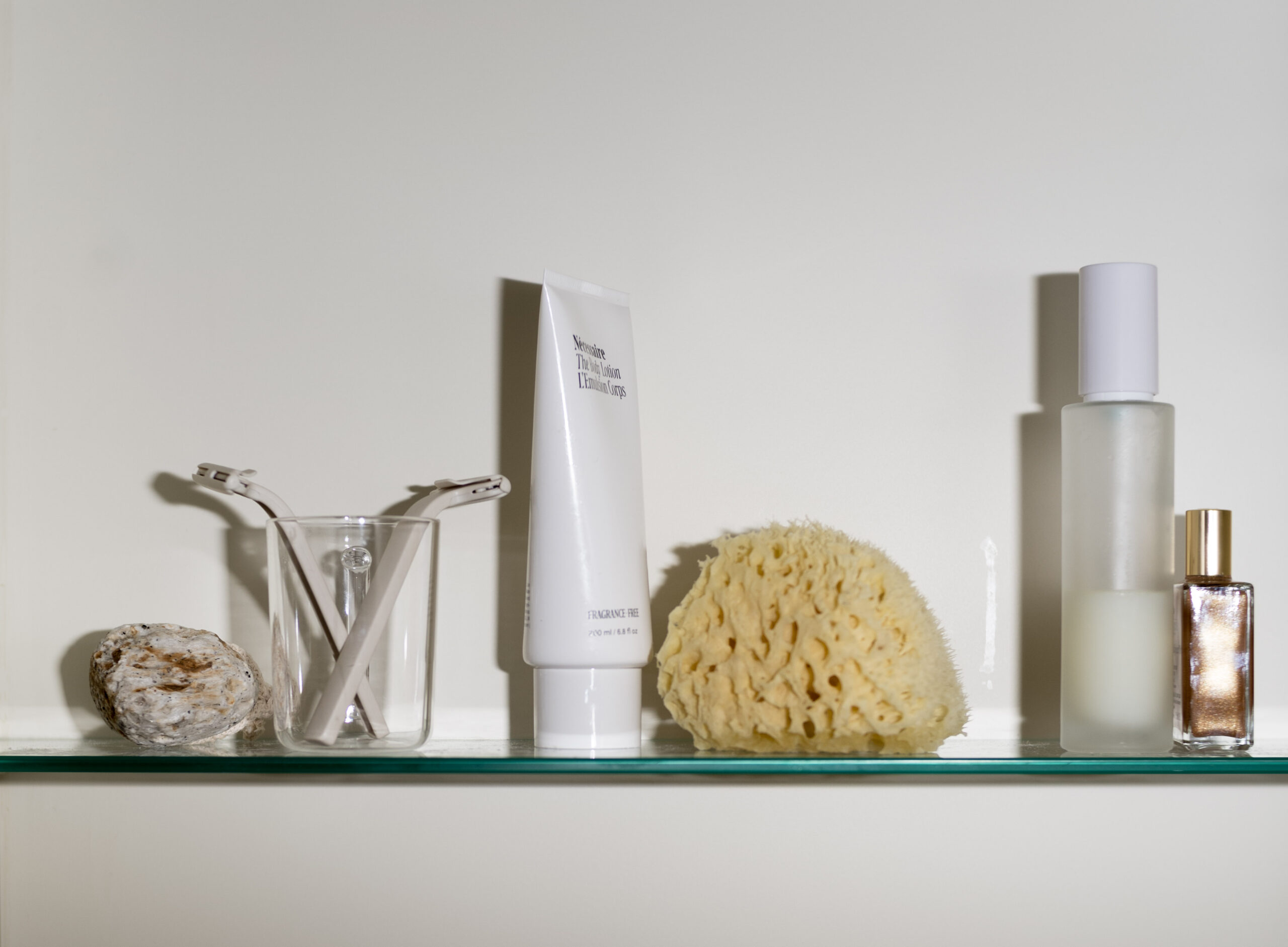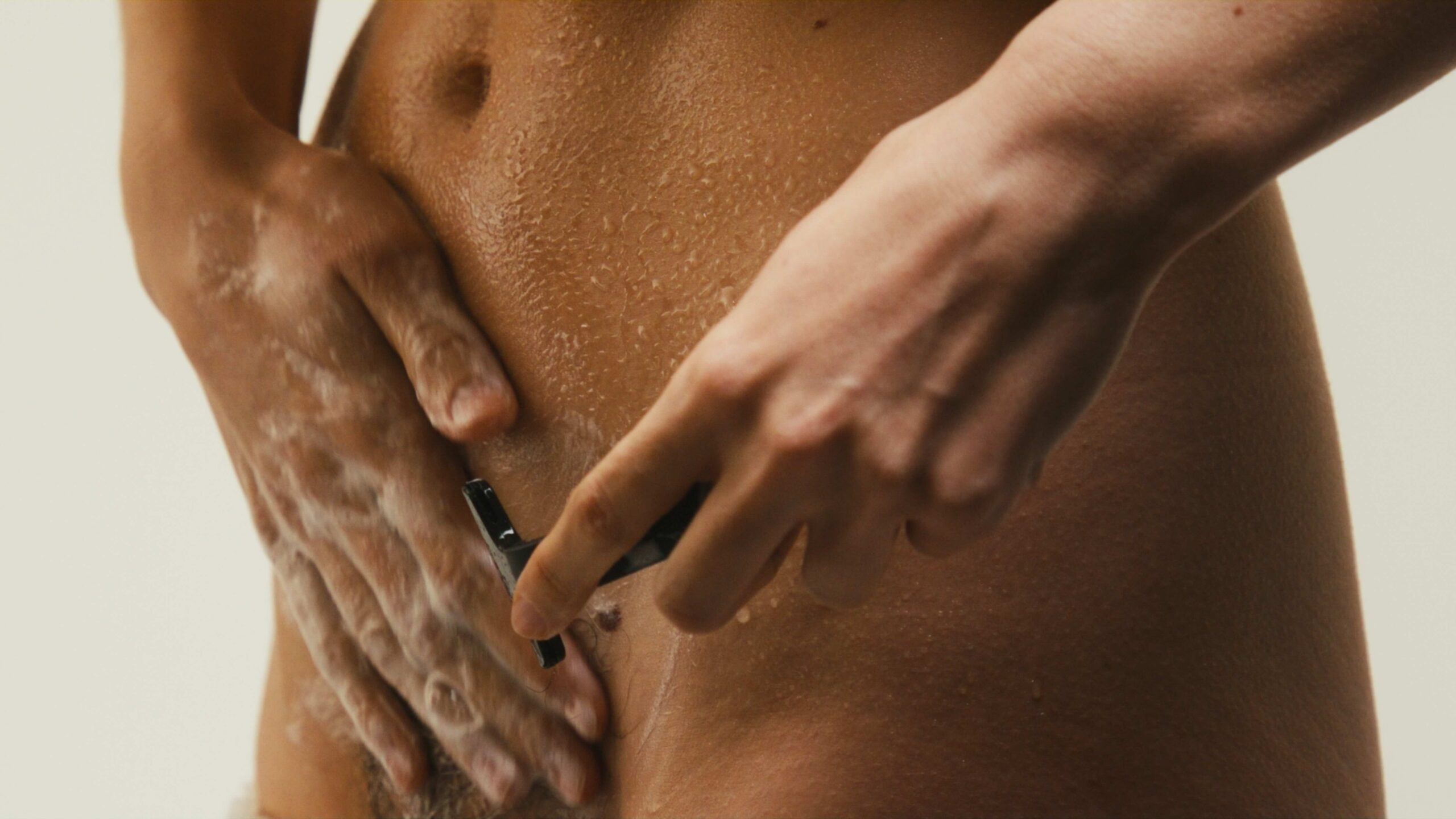
This New Sustainable Brand At Target Is Making Women’s Shaving Sexier Than Ever
With understated eco-conscious design, unapologetic marketing and broad distribution, Nimbi aims to make a big statement in the women’s shaving market.
The British brand has landed in 900-plus Target locations with sleek plastic-free razors and dermaplaners in muted clay, slate and white tones that stand out in a sea of splashy pinks, blues and greens (think Gillette Venus, Schick Intuition and Billie). Already establishing cool-girl credibility in Erewhon, where it’s quickly risen to the No. 1 personal care brand since its November debut, it’s entering the mass market to get serious about confronting the problem of razor waste—Americans throw out 5 billion plastic razors each year—without being preachy about the state of the planet.
“We are not telling people to completely overhaul their lives and become this kind of eco warrior, and I think that’s absolutely integral to sustainable solution success, to be honest. From my perspective, Nimbi is about being future fit,” says co-founder Anna Reid. “I have adopted what I think is a really strong formula of a desire-first strategy. People are looking for something affordable, they are looking for something easy and convenient, which means you need the distribution, and, ultimately, they want something sexy.”

Much of Reid’s understanding of consumer behavior comes from nearly two decades working with a variety of consumer packaged goods brands on everything from communications to product development, including for Estrid, a Stockholm-based subscription women’s razor business that’s likened to the Billie of Europe. She’s learned impulse purchases are important in the women’s shaving category because, dissimilar from men, they often grab razors for a date or vacation rather than have a habitual shaving routine ideal for subscription services.
And they generally pick up razors at the stores or e-commerce destinations they regularly visit rather than during special occasion beauty or fashion retail excursions. Along with Target and Erewhon, Nimbi is on Amazon and at Happier Grocer. Additional natural grocer stockists are in the plans, and the brand also plans to extend in hospitals and hotels, the latter for awareness reasons as it presents itself to affluent guests. Nimbi has an amenity kit with its razor and Shave Foam Puck for Estelle Manor, a 108-bedroom luxury hotel and country club in Oxfordshire.
“There’s a massive white space here of what represents modern femininity.”
“Whether you shop at Hermes or H&M, shaving options are the same. There’s no prestige world with a Sephora versus an Ulta or a Costco. You don’t have that kind of destination that is, this is where I get all my gorgeous premium shaving, and this is where I get all my mass stuff,” says Reid. “There’s a massive white space here of what represents modern femininity, what represents skincare in shaving. That’s what the product is, it’s a skincare item because, by the nature of taking hair off, it’s disrupting your skin surface.”
Nimbi must square with mass-market prices to be in the mass market. At Target, its four-packs of razors are $10, three-packs of dermaplaners are $6, and clay and charcoal shaving pucks are $10. The prices for Gillette Venus choices in Target range widely, but they’re largely around $7 to $20, and Billie’s are from $9.99 to $14.99. Nimbi tested its razors against a leading razor brand and discovered its razors provide up to 12 shaves per razor versus seven shaves per razor for the leading brand.

Other than going up against known quantities in the women’s shaving category, Nimbi faces challenges educating consumers about how its products are different. Its razors are made from compostable wood cellulose, clay and pine oil and a single Swedish-crafted steel blade. All told, they have only four parts compared to 11 for a Venus Sensitive razor. Nimbi was a 2023 member of the Amazon Sustainability Accelerator startup cohort, and that helped it conduct a life cycle analysis with Impact Forecast that estimated its razor has a 90% lower environmental impact than the top disposable razor on the market.
Nimbi’s razors have an open, single blade that doesn’t require intense pressure on the legs or bikini area to remove hair. Reid says it’s a slower process, but better for the skin. The brand tapped five dermatologists to advise on its products and commissioned a clinical study with 30 people that resulted in them avoiding ingrown hairs and razor burn. Nimbi asserts the lack of a lubrication strip on its razor enables it to combat keratosis pilaris with prolonged use.
“I want it to look gorgeous next to my Rhode [Peptide] Glazing Fluid or my CeraVe cleanser.”
The brand characterizes its razor as a “skincare upgrade disguised as a razor.” The skincare positioning is critical because a key group of its customers are skintellectuals who view shaving as an extension of their skincare. Beyond them, shoppers placing a premium on sustainability and those drawn to minimalistic design are in Nimbi’s customer net. Millennials are its demographic sweet spot. Reid says shaving is “intimate, it’s skincare, it’s sensual, I want it to look gorgeous next to my Rhode [Peptide] Glazing Fluid or my CeraVe cleanser.”
Nimbi isn’t afraid to highlight shaving’s intimate, sensual side. The brand is running a campaign on OnlyFans that demonstrates usage of its razor on pubic hair. While the adult content platform may be considered too risqué for some brands, particularly ones in partnerships with family-oriented retailers, Nimbi has turned to it because content that pushes the needle is frequently suppressed on the largest social media networks, and it allows the brand to inform women on everyday shaving practices that tend to go undiscussed.

“It’s not for the male gaze. This is about women sisterhood,” says Reid. “We are a female-owned brand with a whole female team, and we felt there needs to be more content that has complete transparency about the realities of hair removal and shaving. That doesn’t mean that it’s graphic for being graphic’s sake or overly sexualized…We are going to teach you what your grandma, mother, sister, auntie never taught you.”
Reid is a believer in what she calls “unhinged creativity.” The OnlyFans campaign falls under that descriptor as does placing a friend in the middle of a brand party in London to be a real-life human statue celebrating the female form. The “unhinged creativity” isn’t always directly tied to sales, and Reid acknowledges the goal of the OnlyFans campaign isn’t about driving sales. The brand isn’t ignoring marketing to drive sales, however. For that purpose, it’s leaning into user-generated content showing before-and-after images, and meet-ups in cities such as Miami, Los Angeles, New York and Austin, Tex., where its core consumers reside.
Even if Nimbi reaches a small portion of consumers, it could achieve significant sales in a $4 billion U.S. shaving market. Almost half of Americans use disposable razors, and 91% use them at least once a week. Industry sources project Nimbi could generate over $5 million in sales this year at Target. The brand has participated in Dream Ventures’ funding-focused accelerator and raised an undisclosed amount of pre-seed funding from angel investors and consumer venture capital firms, notably Joyance, to support its launch. It expects to soon fundraise for a seed round.





Leave a Reply
You must be logged in to post a comment.